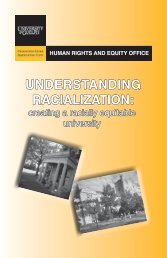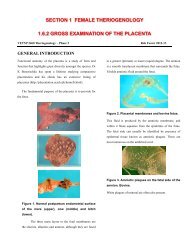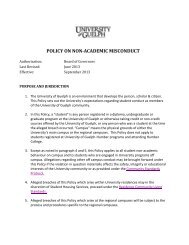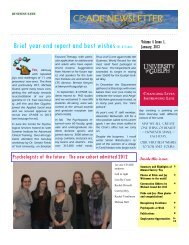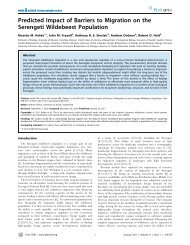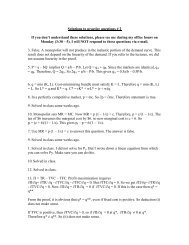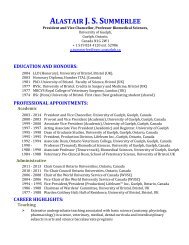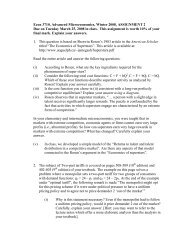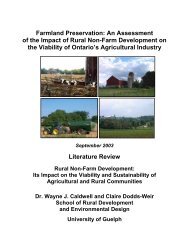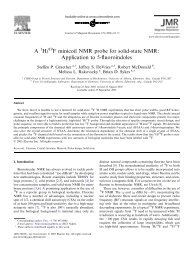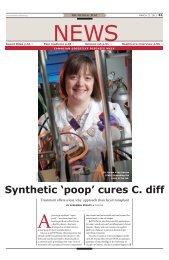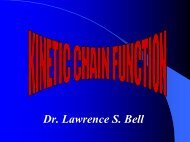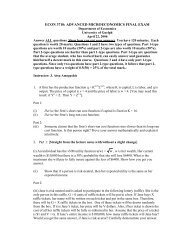(Giving) Savings Accounts? - University of Guelph
(Giving) Savings Accounts? - University of Guelph
(Giving) Savings Accounts? - University of Guelph
Create successful ePaper yourself
Turn your PDF publications into a flip-book with our unique Google optimized e-Paper software.
64 Gilles Deleuze: Image and TextFoucault FlipsOne thing Foucault taught us is that sometimes what we thinkis true is not true. In fact, the exact opposite <strong>of</strong> what we thinkis true, is probably true. After Foucault we get the nauseatingfeeling that we ought to doubt that what we take to be the caseis really the case. We ought to be on high alert. Not for somevague threat lurking in a barbaric corner but right before oureyes. Right under our noses. In a brilliant Cartesian inversion,Foucault suggests that whatever strikes us as clear and distinct,whatever seems indubitable, whatever it is we seem not able todoubt: that is the best place to look for falsehood and deception.In the History <strong>of</strong> Sexuality: Vol. One Foucault took a nearlyindubitable total fact about ‘Victorian England’ – that was themost sexually repressive regime <strong>of</strong> all time, a fact subsequentarchivists and gossips repeated as truth as they investigated andconfirmed the depth and breadth <strong>of</strong> its extraordinary repressivity– and he turned this ‘truth’ on its head(s). He suggestedthat the very opposite might, in fact, be the case: that ‘VictorianEngland’ was perhaps the best example <strong>of</strong> a total and perpetualsexualized fact in the whole history <strong>of</strong> humankind. We can callthese ‘ hypotheses folles’: ‘inversions’.A Nearly Indubitable Total Current FactWhich present truths are so plain as to approach the banal?Which facts <strong>of</strong> the matter so pervasive and common-sensical thatdoubting them borders on lunacy, on the heretical?A cluster <strong>of</strong> truths about virtue, justice, debt, saving (conservation),rates <strong>of</strong> expenditure, distribution and fairness. Theseinclude but are not exhausted by the following: (1) That weare, by nature, acquisitive and possessive individuals; (2) Thatresponsible man, the good citizen, the very best and most desirablekind <strong>of</strong> person is one who saves rather than squanders, ormore precisely, saves judiciously and spends well; (3) That justiceis primarily a matter <strong>of</strong> distribution, and its main challengethus the problem <strong>of</strong> scarcity; (4) That a proper ratio <strong>of</strong> savings toWHolland_Ch04_FPP.indd 642/5/2009 5:53:56 PM



